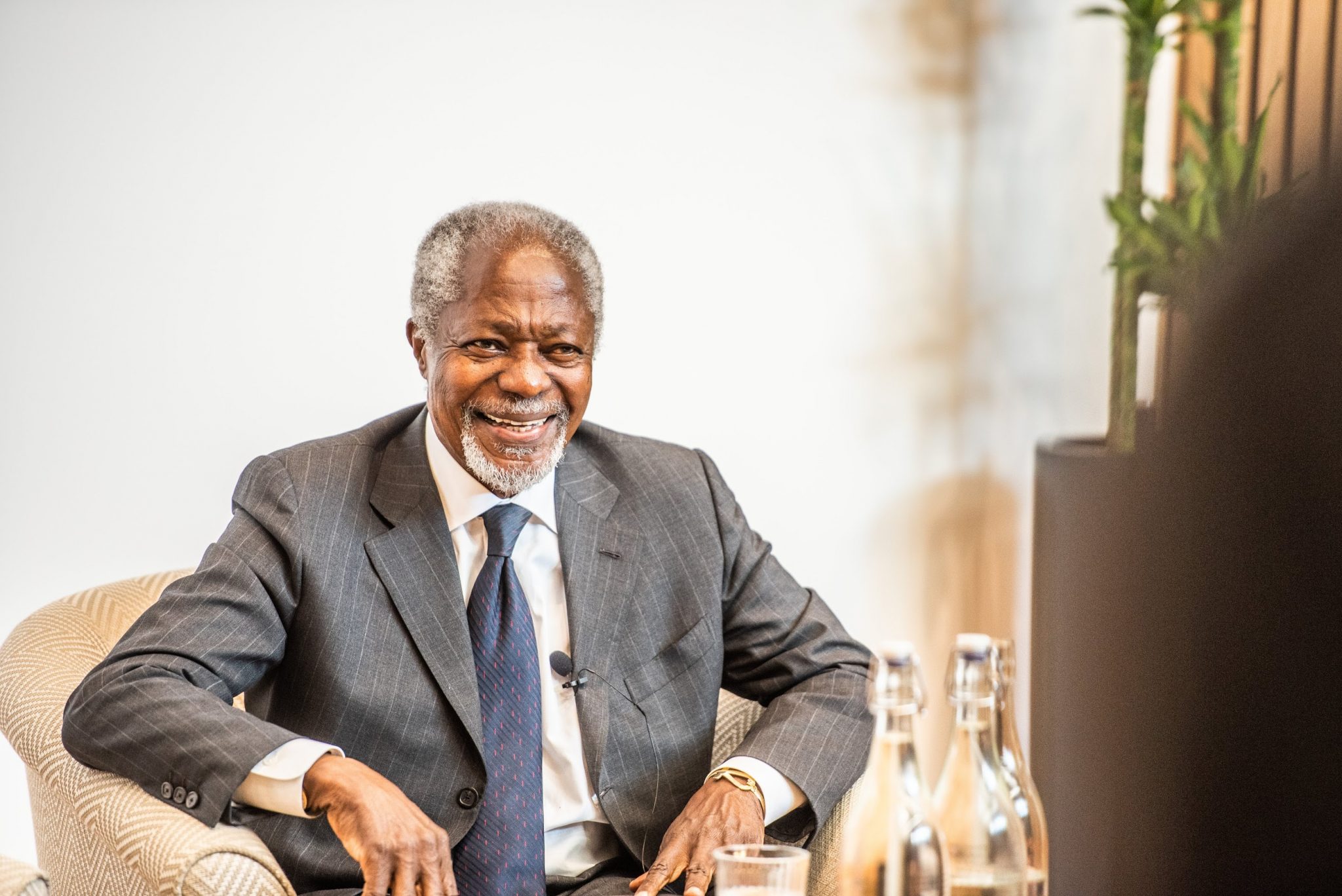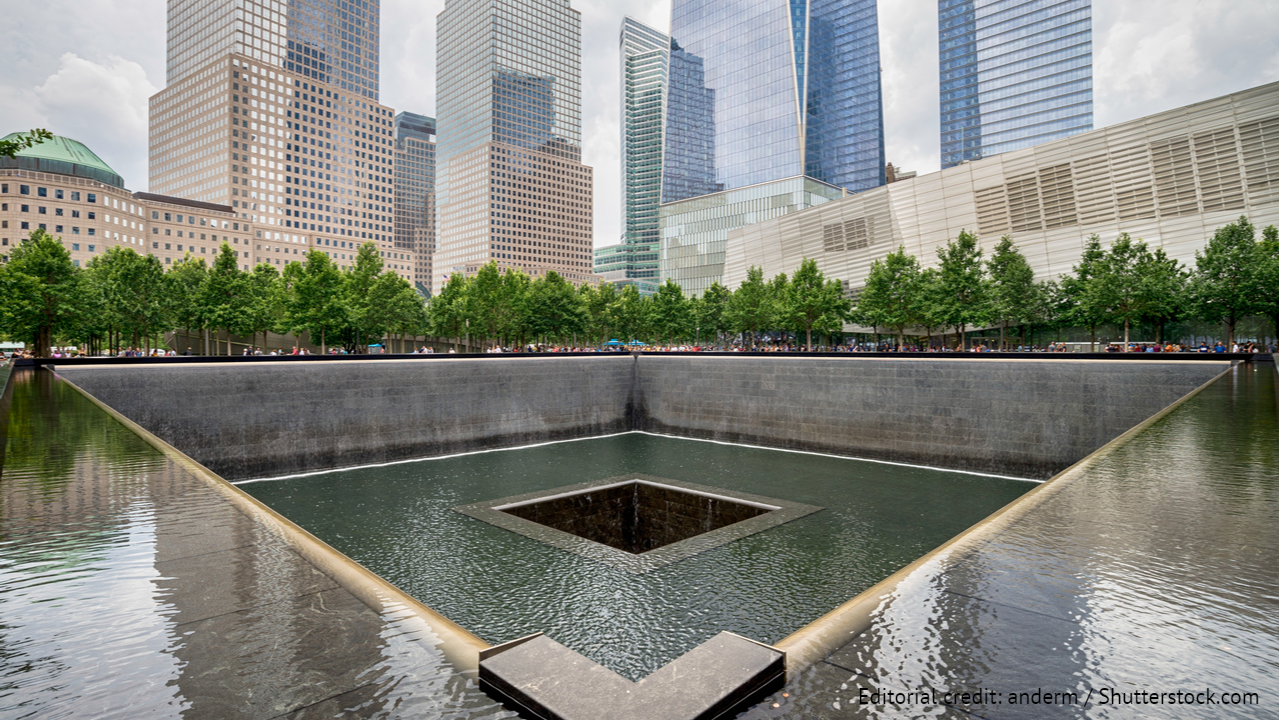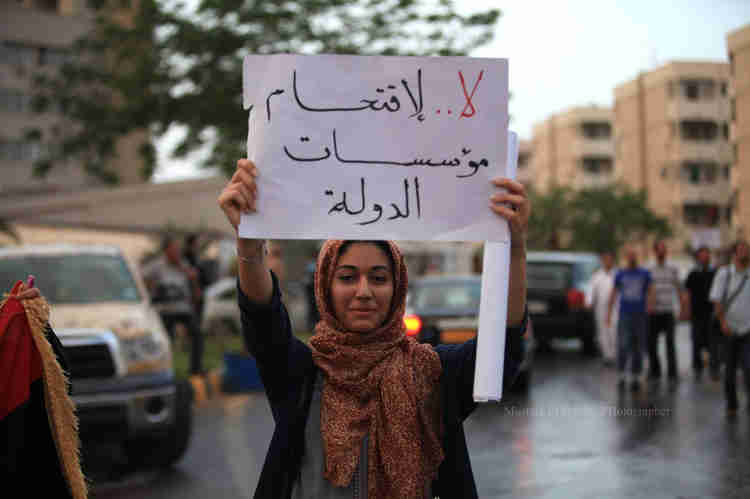Kofi Annan : ‘African justice is weak’
“Africans want justice, preferably from their own governments if they can and, if not, from the international criminal court”
The former UN secretary-general talks to David Smith about al-Shabaab, the success of Rwanda, and the future of Zimbabwe.
David Smith, Africa Correspondent The Guardian
Kofi Annan speaks with the unhurried, temperate tone of someone confident of being listened to. Last week the former UN secretary-general met his match, however, in the form of hundreds of Sowetan schoolchildren blowing vuvuzelas in a football stadium.
“Silence please,” Annan was forced to plea as his speech was interrupted, something that can rarely have happened to him at the UN general assembly or even mediating in Syria. Organisers of the One Young World summit, an annual gathering of “the brightest young people from around the world” being staged in Africa for the first time, were visibly mortified.
But once the summit proper got under way, in the more conventional surroundings of a Johannesburg conference hall, speakers including Bob Geldof, Arianna Huffington, Winnie Madikizela-Mandela and Muhammad Yunus were met with hushed reverence. For his part, Annan warned the audience drawn from 190 countries that the benefits of globalisation have not been shared fairly and the gap between rich and poor is unsustainable.
It is a theme that sub-Saharan Africa’s first UN secretary-general develops later in an interview with the Guardian in a luxury villa at the five-star Saxon Hotel. There must be greater accountability and transparency, he says, to ensure Africa’s vast natural resources benefit all its people. But on nothing does Annan sound so untroubled by doubt as the principle of the international criminal court (ICC), set to be put in the dock itself on Saturday when Africa leaders meet to discuss a possible pullout.
“I don’t share the view that the ICC is anti-African,” the 75-year-old Ghanian says firmly. “The ICC is not putting Africa on trial. The ICC is fighting impunity and individuals who are accused of crimes. We should also understand, and this point cannot be made strongly enough: of all the cases, four were referred to the ICC by African governments themselves. The two others, Libya and Darfur, were referred to the court by the security council.”
He continues: “What is important is that African judicial systems are weak. The victims deserve justice and they want justice. When I travel around the continent, Africans want justice, preferably from their own governments if they can and, if not, from the international criminal court. The day when African courts become independent, strong and can handle these cases, I think we will see fewer referrals to the ICC.
“The question I cannot ask often enough is: who speaks for the victims? How do they get justice? Who’s in their corner?”
These are burning questions in Kenya in particular, where those who suffered post-election violence more than five years ago are still waiting. But ICC trials of president Uhuru Kenyatta and his deputy William Ruto may become another victim of the last month’s al-Shabaab killing spree in Nairobi’s Westgate shopping mall. It was Kenya’s worst terrorist attack for 15 years, but Annan says the response must come from far and wide.
“I think the al-Shabaab issue and the terrorism issue should not be seen as only a problem for Kenya. It is an international problem and governments and security forces have to share information and intelligence and work together to deprive the terrorists of the opportunities and constantly ensure that they are on the wrong foot.
“They should not give them havens, they should not allow them to use the financial systems to move monies around.”
Al-Shabaab claimed it was bringing the war to Kenya in retaliation for the presence of Kenyan troops in Somalia. Annan admits: “The Kenyan-Somali situation is an awkward one. First of all, it’s next door. When I was in peacekeeping, we normally did not take troops from neighbouring countries into an operation. We tried to bring them further afield.
“It’s also a bit more complicated in Kenya because you have Kenyan-Somalis and Somalis from beyond Kenya. The government has a double problem. Apart from fighting and containing the terrorists, it also has to hold its own society together. It’s a very complex issue which I’m sure the government is aware of and has to handle with care.”
Since leaving the UN at the end of 2006, Annan has hardly slowed down with positions in several bodies; one of these is chair of the Africa Progress Panel. Does he share the euphoria du jour around “Africa rising”, despite evidence that, in many countries, wealthy elites are leaving poor majorities behind? “Some countries have done extremely well. Equatorial Guinea today has a GDP higher than Poland and yet two thirds of the people live in poverty, they have a very bad health system; how do you explain that? So we should not be euphoric because of the gross figures that GDPs are growing; it has to be translated locally into improved lives for the people in terms of health, education and jobs.
He warns: “Unfortunately very few governments think about youth unemployment when they are drawing up their national plans. Some will tell you because the process is usually dominated by ministers of finance and they are more concerned about growth, exchange rates, inflation rates and all this, and very few actually ask the question, ‘What does this policy do for employment? What does it do to our youth?’ I think this is a question that each government has to put at the centre of its plans.”
One of the most spectacular success stories in development and economic growth is Rwanda, less than 20 years after the genocide in which 800,000 people died. Annan is quick to praise and slow to criticise the leader he refers to as “Paul”, seen by opponents as a ruthless autocrat who has jailed opponents and journalists.
“Each country has its own peculiarities,” he says carefully. “Rwanda has been to a place where most countries have not been. Paul has tried to rally his people and turn his country around. He’s taken some tough measures but he’ll probably tell you without those measures he couldn’t have achieved what he has achieved.
“But as we go forward, if they build the institutions that ensure the rights of everyone and people can participate and have their say without getting into trouble, then we are moving in the right direction. He has done well in terms of growth rates, in terms of the systems he has put in place. Will that stand the test of time? That will be real test of success.”
When the issue of Kagame’s alleged support for the M23 rebel militia in neighbouring Democratic Republic of the Congo is raised, Annan interjects rapidly: “I don’t want to go there: that’s for my secretary-general.”
He is no less delicate in considering Zimbabwean president Robert Mugabe, who has been accused of ethnic cleansing, orchestrating political violence, stamping on civil society and media and rigging elections during his 33-year rule.
“I think he has made a contribution: he was very active in the independence struggle, fought for the independence of his country and also worked with quite a few of the leaders in this region for their own independence – very active members of the liberation movements. So he has a place in history for that.
“We’ve seen the economic and political debate and the difficulties in and around Zimbabwe. The last elections have been declared ‘free’ and ‘fair’; I don’t think they used the word ‘credible’. I think the results have been accepted and he has a good party organisation, they’ve been around for a long time, and probably could have won with or without games.”
There is little in these remarks to console Zimbabwean opposition leader Morgan Tsvangirai, who insists the election was fraudulent and has plunged the country into crisis. Annan adds: “What is important is that Zimbabwe, which had such great prospects, probably has a second chance now. It was a breadbasket of the region. When I hear of World Food Programme sending food to Zimbabwe, it shows you what a setback has taken place. I think we should really work with them to pick up the pieces and move forward. Holding on to the past and who was right and who was wrong and all this doesn’t help.”
Article originally appeared in the Guardian



